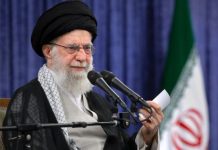The proposition of mid-term elections might appeal to PTI supporters by giving them a pathway back to power through democratic means, while allowing the government to defuse ongoing tensions. If the PTI leadership settles for anything less than mid-term elections, it risks alienating its core supporters, who may view such a concession as a sign of weakness or a betrayal of their cause
Analysis
Ansar Mahmood Bhatti
The failed attempts to privatize Pakistan International Airlines (PIA) highlight the dismal state of the nation’s political and economic landscape, which continues to weigh heavily on the population. People who voted in the 2024 elections had hoped the new government would bring prosperity and relief, yet they now face mounting hardships. Disillusionment is growing as the government has taken a path that increasingly pits it against the judiciary. Through the 26th amendment, the judiciary’s powers have been significantly weakened, with further efforts underway to deepen divisions within its ranks, effectively transforming it into a subdued institution.
The failed attempt to privatize PIA highlights a significant lapse in government planning, revealing a lack of adequate preparation before offering the national airline for sale. The bid of Rs 10 billion, compared to the government’s expected Rs 85 billion, was a substantial embarrassment for decision-makers. Furthermore, the bidder clarified that their effective offer was Rs 210 billion, as they anticipated covering the airline’s substantial liabilities of approximately Rs 200 billion. This disparity underscores the need for more thorough financial analysis and transparent communication in handling such high-stakes privatization efforts.
The current political turmoil in Pakistan, particularly the government’s preoccupation with controlling the judiciary, has led to a series of administrative oversights that seem likely to persist. Recently, Pakistan had the opportunity to bolster its international reputation by hosting the Shanghai Cooperation Organisation (SCO) Heads of Government Conference—a notable diplomatic event that could have significantly enhanced its global image. Unfortunately, the event’s potential impact was undercut by the government’s divided attention and domestic priorities.
While hosting this important conference, which brought together high-ranking officials and dignitaries from various member states, the government’s attention was still largely focused on the contentious 26th Amendment. The amendment, intended to reshape judicial power, has sparked considerable debate and political maneuvering, with government officials prioritizing its passage over the smooth conduct of the conference. In a stark display of this prioritization, Prime Minister left Islamabad shortly after the conference’s conclusion to attend a political meeting in Lahore aimed at securing support for the amendment. This abrupt departure surprised foreign delegates, who found themselves largely overlooked in Islamabad without the presence of top government officials.
This inattentive handling of the conference left an unfavorable impression on the foreign representatives, who had expected a display of Pakistan’s commitment to fostering stronger international ties. Instead, the experience underscored the government’s internal preoccupations and raised questions about its diplomatic priorities. The missed opportunity cost Pakistan potential goodwill as the nation’s leadership appeared more focused on domestic power struggles than on nurturing critical regional partnerships.
The government seems determined to keep PTI founder Imran Khan behind bars and his party on the defensive. It has taken extensive measures to limit PTI’s political influence, deploying significant resources to weaken its organizational structure and prevent it from fully engaging in the political landscape. From legal battles and administrative actions to stringent crackdowns on party supporters, the government has left no avenue unexplored in its effort to stifle PTI’s momentum.
Ironically, if the government had devoted even half of these efforts to addressing public issues and enhancing social welfare, it could have substantially improved the lives of ordinary citizens during its time in power. Instead of focusing primarily on sidelining a political rival, the same energy could have been channeled into policies that tackle pressing issues such as economic hardship, healthcare, and education. By concentrating so heavily on limiting PTI, the government has missed an opportunity to make meaningful changes that could have won it more public support through positive, impactful governance.
At present, it appears the government has successfully managed to exert control over the judiciary and contain the PTI. However, this control may prove short-lived, as the government’s actions lack the support and confidence of the public. In contrast, both the judiciary and the PTI seem to enjoy stronger public backing, which could influence outcomes in the coming days.
One likes it or not, PTI is a reality and it has to dealt with in that perspective. Without taking it on board country’s road to political and economic stability would remain elusive. Efforts are already on to woo Imran Khan. He has been offered to release provided he allows the incumbent set up to complete its term – a proposal the founder PTI seems to have outright rejected.
The current political climate in the country is tense, with an evident divide between the ruling establishment and the opposition, particularly the PTI. If those in power are genuinely committed to steering the country out of its present state of chaos, they must seek a solution that is practical and appealing to all major stakeholders. Mid-term elections could serve as a viable compromise, potentially enticing the PTI and its leadership to abandon their confrontational approach in favor of a structured democratic process.
The proposition of mid-term elections might appeal to PTI supporters by giving them a pathway back to power through democratic means, while allowing the government to defuse ongoing tensions. If the PTI leadership settles for anything less than mid-term elections, it risks alienating its core supporters, who may view such a concession as a sign of weakness or a betrayal of their cause. Consequently, this could lead to a loss of public support, as the PTI’s base is largely driven by demands for political accountability and systemic change.

















